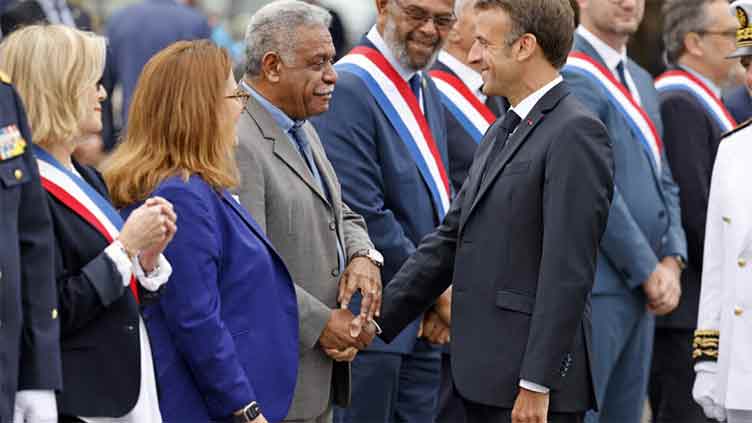In restive New Caledonia, Macron sees Pacific power and influence

World
In restive New Caledonia, Macron sees Pacific power and influence
PARIS (Reuters) - In 2018, a year after becoming France's president, Emmanuel Macron flew to the remote French-ruled Pacific island of New Caledonia to outline his latest foreign policy plan.
With China's regional ambitions growing, a new Indo-Pacific strategy was needed to prevent it from becoming hegemonic, he said. New Caledonia would be a key French anchor of that plan.
"I believe in the future of this territory, and I believe in the place that this territory occupies in a broader strategy," he said. "The Indo-Pacific is at the heart of the French project."
Six years later, Macron's Indo-Pacific aspirations are facing their toughest test yet after days of deadly unrest on New Caledonia. At least seven people have died in protests against a constitutional amendment that would expand New Caledonia's electorate to include recent French arrivals. Some indigenous Kanaks believe the change will dilute their vote.
Macron reacted with a firm hand, dispatching 3,000 security officers to quell unrest that he called "an unprecedented insurrection". Although he delayed ratifying the voting reform to reach a settlement, he said the measure has "democratic legitimacy".
He also appeared to extinguish some islanders' hopes of independence, saying the results of a disputed 2021 referendum, in which an overwhelming majority on New Caledonia voted to remain French, were valid.
Aides and experts said Macron's tough stance underlines his commitment to a doctrine that gives France a foothold in a geopolitically important region where the United States and China are jostling for power.
New Caledonia "sustains France's role as a great power in the world," said Denise Fisher, Australia's former consul-general on the island. It is one of five French island territories across the Indo-Pacific, a "string of pearls" that bolsters Paris' claim to have the world's second largest exclusive economic zone, largely thanks to its maritime control of waters around those islands, Fisher said.


